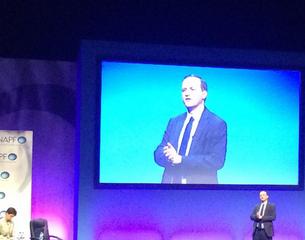
One of the lasting legacies of the coalition government’s pension reforms will be the introduction of collective defined contribution (CDC) schemes, said pensions minister Steve Webb at the annual National Association of Pension Funds (NAPF) conference.
Webb said that CDC pension schemes have a future in this country, having seen developments in some individual schemes offering CDC options.
CDC schemes were first proposed in the government’s consultation paper, Reshaping workplace pensions for future generations, published in November 2013.
This type of scheme is designed to bring greater clarity to members on their pension outcome at retirement by sharing risks between all scheme members by pooling the investment in one fund.
Webb said: “When there is a framework for shared risks then it will certainly have a future in this country. We are starting to see individual schemes offering CDC options.
“As soon as there is a route, and as demand rises, we will have a structure in place it will be this government’s lasting legacy.”
Webb also raised the topic of how well auto-enrolment has been received but said more could be done to help employees contribute more to their pension scheme.
From 2018, minimum contributions required under auto-enrolment will rise to 8% spread between employer and the employee. But Webb said that compulsion is not the answer to boosting contributions although default auto-escalation might be.
“The case for compulsion for automatic-enrolment was stronger a few years ago. Not as strong now with 90% opt-in rate. I don’t think compulsion is the answer, the UK will not go down the Aussie road while I am in charge.
“Yet where do contributions go after 8%? In principle, default auto-escalation is probably the best answer to the problem that 8% is not enough.”
The pensions minister also said that the current structure for tax relief on pension schemes won’t hold and suggested that tax relief should be flat rate, higher than the current basic rate, but lower than current higher rate.
He added: “Next April, there will be a radical throwing open of the light on transaction costs.
“We have made extraordinary achievements over the past five years, I hope to have the chance to work with you for a just a little bit longer.”